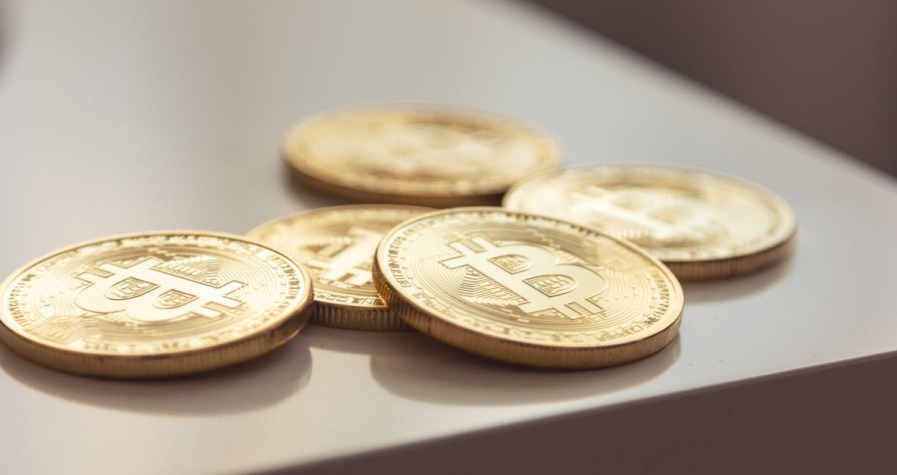Cryptocurrency scams have become increasingly sophisticated and unfortunately more common in today’s digital landscape. Whether you’ve fallen victim to a fake investment scheme, fraudulent trading platform, or romance scam involving digital currency, you’re not alone – and there are concrete steps you can take to fight back.
Reporting a crypto scam isn’t just about potentially recovering your funds; it’s about protecting others from falling into the same trap. The process might seem overwhelming at first, but knowing which authorities to contact and what information to provide can make all the difference in your case.
Taking swift action is crucial when dealing with cryptocurrency fraud. The sooner you report the incident to the relevant agencies, the better your chances of tracking down the perpetrators and preventing them from targeting additional victims. Let’s explore exactly how you can report these scams effectively and increase your odds of a positive outcome.
Recognising Crypto Scam Warning Signs
Recognising crypto scam warning signs protects your digital assets from fraudulent schemes targeting cryptocurrency users. These scams operate through sophisticated methods that exploit investors’ enthusiasm for digital currencies.
Unrealistic Investment Returns
Fraudsters promise extraordinary returns that exceed market standards. Legitimate crypto investments don’t guarantee profits of 50% to 500% within weeks or months. When promoters claim their platform generates consistent daily returns or doubles your investment within 30 days, these represent classic Ponzi scheme characteristics.
Investment scams often display fabricated profit charts showing unrealistic growth patterns. Authentic cryptocurrency markets experience volatility, making guaranteed returns impossible for any legitimate investment platform.
Pressure Tactics and Urgency
Scammers create artificial time constraints to prevent careful consideration of investment decisions. They use phrases like “limited-time offer,” “exclusive opportunity,” or “act now before it’s too late” to rush your decision-making process.
Romance scammers particularly exploit emotional connections by claiming urgent financial needs or time-sensitive investment opportunities. These manipulative tactics bypass rational evaluation of the investment proposal.
Requesting Private Keys or Seed Phrases
Legitimate cryptocurrency services never request your private keys or seed phrases through unsolicited communications. These credentials provide complete access to your digital wallet, making their disclosure equivalent to handing over your bank account details.
Phishing attempts often masquerade as customer service representatives from established exchanges like Coinbase or Binance. They claim account verification issues require immediate provision of wallet credentials.
Unverifiable Company Information
Fraudulent crypto platforms lack verifiable business registration, physical addresses, or transparent ownership structures. When you research the company’s background, legitimate businesses display proper regulatory compliance and established operational history.
Fake investment platforms often use stock photos for team members or provide vague biographical information without verifiable credentials. Professional networking sites like LinkedIn don’t show profiles for claimed executives or advisors.
Social Media and Celebrity Endorsements
Scammers fabricate celebrity endorsements using manipulated images or fake testimonials from well-known personalities. These fraudulent promotions often appear on social media platforms through paid advertisements or impersonation accounts.
Giveaway scams promise free cryptocurrency in exchange for sending smaller amounts first. Even when these appear to come from verified celebrity accounts, they represent compromised profiles used by criminals.
Unsolicited Communication and Cold Outreach
Legitimate cryptocurrency investments don’t rely on unsolicited phone calls, emails, or direct messages for customer acquisition. When strangers contact you through social media or dating apps promoting crypto opportunities, these interactions typically indicate fraudulent schemes.
Romance scammers spend weeks building emotional connections before introducing cryptocurrency investment topics. They gradually transition conversations toward financial opportunities while maintaining the romantic relationship facade.
Immediate Steps When You’ve Been Scammed
Cryptocurrency scam victims must act swiftly to maximise recovery chances and prevent additional losses. Taking prompt action within the first few hours significantly improves your ability to trace funds and secure evidence.
Documenting the Incident
Evidence collection forms the foundation of any successful scam report and potential recovery process. Gather all transaction identifiers (TXIDs) from your wallet or exchange account, as these provide crucial blockchain evidence for investigators.
Screenshot all communication with the scammer, including WhatsApp messages, Telegram chats, emails, and social media conversations. Save these images with timestamps intact, as investigators use communication patterns to identify fraud networks.
Record wallet addresses involved in fraudulent transactions, both yours and the scammer’s receiving addresses. Note the exact amounts transferred, including any fees charged during each transaction.
Compile personal information the scammer shared, such as claimed names, phone numbers, social media profiles, and any identification documents they provided. Document investment platform URLs, app download links, and website screenshots before scammers potentially remove them.
Create a detailed timeline of events, listing dates and times of initial contact, key conversations, investment promises made, and when you first suspected fraud. This chronological record helps authorities understand the scammer’s methodology.
Securing Your Remaining Assets
Asset protection prevents further cryptocurrency theft while you pursue recovery options. Transfer any remaining funds from compromised wallets to new wallets with fresh private keys and seed phrases.
Enable two-factor authentication (2FA) on all cryptocurrency exchanges and wallet applications you use. Use authenticator apps rather than SMS-based 2FA, as scammers can intercept text messages through SIM swapping attacks.
Change passwords immediately on all accounts connected to your cryptocurrency activities, including email accounts, exchange platforms, and banking applications. Create unique, complex passwords for each service using a password manager.
Monitor your remaining cryptocurrency accounts for unauthorised transactions or login attempts. Set up account alerts for any activity, including trades, withdrawals, and password changes.
Remove any remote access software the scammer convinced you to install, such as TeamViewer, AnyDesk, or Chrome Remote Desktop. Run comprehensive antivirus scans to detect keyloggers or other malware that could compromise your new security measures.
Review bank statements and credit reports for any unauthorised activity, as cryptocurrency scammers often expand their fraud to traditional financial accounts once they gain your trust.
Reporting to UK Authorities
Reporting crypto scams to the appropriate UK authorities maximises your chances of investigation and potential recovery. Two primary agencies handle cryptocurrency fraud cases and regulate the digital asset sector.
Action Fraud and Police
Action Fraud serves as the UK’s national reporting centre for fraud and provides your first point of contact when reporting crypto scams. You can file complaints online through their website or by calling 0300 123 2040 to receive immediate guidance on your case.
When reporting to Action Fraud, provide comprehensive information including:
- Your personal details and contact information
- Transaction IDs from all cryptocurrency transfers
- Scammer’s details such as usernames, phone numbers, and email addresses
- Documentation proving ownership of stolen digital assets
- Screenshots of conversations and communications
- Timeline of events detailing how the scam occurred
Action Fraud then refers your case to the appropriate police force or investigative agency based on the nature and scale of the fraud. Local police forces investigate smaller cases whilst the National Crime Agency handles complex international cryptocurrency fraud cases exceeding £100,000.
The police advise never sharing private keys, passwords, or seed phrases with anyone claiming to represent official authorities. If you receive unexpected contact from someone claiming to be police or government officials, verify their identity by independently calling 101 before providing any information.
Financial Conduct Authority (FCA)
The Financial Conduct Authority regulates cryptoasset businesses operating in the UK and maintains oversight of firms offering cryptocurrency services. Before engaging with any cryptocurrency platform or investment scheme, check the FCA’s Financial Services Register to verify the firm’s authorisation status.
You can report unauthorised firms and suspicious cryptocurrency activity to the FCA through multiple channels:
- Freephone: 0800 111 6768 for general enquiries
- Consumer helpline: 0300 500 8082 for scam reports
- Online contact form through the FCA website
The FCA investigates serious misconduct including money laundering within the cryptocurrency sector and collaborates with law enforcement agencies to prosecute fraudulent operators. They also issue warnings about unauthorised firms and maintain a list of companies to avoid on their website.
When reporting to the FCA, include details about unauthorised investment schemes, fake trading platforms, and firms operating without proper registration. The FCA uses this information to issue consumer warnings and take enforcement action against fraudulent cryptocurrency businesses operating in the UK.
International Reporting Options
Cryptocurrency scams often cross international borders, requiring coordination between multiple law enforcement agencies worldwide. Several global organisations provide specialised reporting channels for crypto fraud victims depending on your location and the scope of the scam.
FBI’s IC3 for US-Based Scams
US victims can file crypto scam reports through the FBI Internet Crime Complaint Center (IC3) at ic3.gov or contact your local FBI field office directly. The IC3 processes over 800,000 complaints annually and specialises in investigating cryptocurrency-related fraud cases.
When submitting your report, include detailed transaction information such as cryptocurrency addresses, transaction amounts with specific values, precise dates and times, and complete transaction IDs (hashes). Document how the scammer initially contacted you through social media platforms, dating apps, email, or phone calls.
Provide screenshots of all communications including messages, emails, and voice recordings if available. Include information about any websites or applications the scammer directed you to use, along with details of cryptocurrency exchange accounts involved in the fraudulent transactions.
Create a comprehensive timeline of events showing the progression of the scam from first contact to financial loss. File your report even if transaction details remain incomplete, as the FBI can often trace partial information through blockchain analysis tools.
Interpol and Cross-Border Cases
Cross-border crypto fraud cases involving multiple jurisdictions require coordination through Interpol, which connects law enforcement agencies across 195 member countries. Interpol maintains a dedicated cybercrime unit that specialises in cryptocurrency investigations spanning international boundaries.
Contact your national law enforcement agency first, as they serve as the primary liaison with Interpol for international cases. European victims can access additional support through Europol, which facilitates collaboration between European Union member states for crypto fraud cases affecting multiple countries.
Interpol coordinates investigations by sharing intelligence, transaction data, and suspect information across borders. The organisation maintains databases of known crypto scam patterns and suspicious wallet addresses that assist local authorities in building stronger cases.
For cases involving significant financial losses exceeding £50,000 or organised criminal networks, Interpol deploys specialised investigation teams to work directly with national authorities. These teams provide advanced blockchain analysis capabilities and access to international databases of cryptocurrency transactions.
Submit detailed evidence packages through your local police, including transaction records, communications in multiple languages, and any cross-border wire transfers or traditional banking transactions connected to the crypto scam.
Contacting Your Bank and Payment Providers
Contacting your bank and payment providers immediately after discovering a crypto scam significantly increases your chances of recovering lost funds and prevents further unauthorised transactions. Financial institutions possess sophisticated fraud detection systems and can implement protective measures within minutes of receiving your alert.
Contact your bank within the first 24 hours to maximise recovery opportunities, as many financial institutions maintain strict timeframes for fraud investigations. Provide your bank with comprehensive details including transaction dates, amounts, recipient wallet addresses, and the crime reference number from Action Fraud if you’ve already reported the incident.
Most UK banks offer 24/7 fraud helplines that you can access immediately:
- Barclays: 0800 400 100
- HSBC: 03457 404 404
- Lloyds: 0345 300 0000
- NatWest: 0370 040 4404
- Santander: 0330 9 123 123
Document all communication with your bank by requesting reference numbers for each call and saving email correspondence. Banks typically provide fraud case numbers that track your complaint through their internal investigation process.
Alert credit card providers separately if you used credit cards to purchase cryptocurrency, as they operate under different fraud protection schemes. Credit card companies often provide enhanced consumer protection under Section 75 of the Consumer Credit Act, which may offer additional recovery options for transactions between £100 and £30,000.
Request immediate account monitoring from your financial providers to detect any suspicious activity across all your accounts. Banks can implement enhanced security measures including transaction alerts, temporary spending limits, and additional verification requirements for large transactions.
Provide transaction evidence including bank statements, cryptocurrency exchange receipts, and blockchain transaction records to support your fraud claim. Financial institutions require detailed documentation to initiate chargeback procedures with payment processors and cryptocurrency exchanges.
Your bank’s fraud team can coordinate with cryptocurrency exchanges to trace stolen funds and potentially freeze accounts associated with the fraudulent activity, particularly when working alongside law enforcement agencies investigating the case.
Reporting to Crypto Exchanges and Platforms
Cryptocurrency exchanges and platforms play a critical role in investigating fraud cases and can often freeze accounts or trace transactions when fraud occurs through their systems. Contact the relevant exchange immediately after discovering the scam to maximise your chances of asset recovery.
Contacting Your Exchange Platform
Navigate to the exchange’s support section and locate their fraud reporting channels. Major platforms like Binance, Coinbase, and Kraken maintain dedicated security teams that handle fraud investigations. Submit a detailed report including your account information, transaction IDs, and evidence of the fraudulent activity.
| Exchange Platform | Reporting Method | Response Time |
|---|---|---|
| Binance | Security incident form | 24-48 hours |
| Coinbase | Support ticket system | 1-3 business days |
| Kraken | Security team email | 24-72 hours |
| Crypto.com | In-app reporting | 1-2 business days |
Essential Information to Provide
Include comprehensive transaction details when reporting to exchanges. Provide the exact transaction hash, wallet addresses involved, timestamps of suspicious activities, and screenshots of your trading history. Document any communications with suspected scammers and attach proof of identity verification to expedite the investigation process.
Exchanges require your account credentials, including username, registered email address, and phone number associated with the account. Supply copies of government-issued identification and proof of address if the platform requests additional verification during their investigation.
Exchange Investigation Process
Cryptocurrency platforms typically freeze suspected accounts within hours of receiving fraud reports. Security teams analyse blockchain transactions to trace fund movements and identify patterns consistent with fraudulent behaviour. Exchanges collaborate with law enforcement agencies and share intelligence with other platforms to prevent scammers from moving stolen assets.
Your exchange may request additional documentation during their investigation, including bank statements, proof of asset ownership, or detailed explanations of how the fraud occurred. Respond promptly to these requests as delays can impact the effectiveness of asset recovery efforts.
Following Up on Reports
Monitor your email for updates from the exchange’s security team and maintain records of all correspondence. Exchanges typically provide case reference numbers that you can use to track investigation progress. Contact the platform if you don’t receive acknowledgment of your report within 48 hours.
Document any temporary account restrictions or freezes implemented by the exchange during their investigation. These measures protect your remaining assets while security teams work to resolve the fraud case and determine appropriate recovery actions.
Legal Recourse and Recovery Options
UK law recognises cryptocurrency fraud as theft or fraud, giving you legal pathways to recover stolen digital assets. Your recovery success depends on taking urgent and strategic legal action under English law.
Engaging Solicitors
Contact a law firm experienced in cryptocurrency and digital asset recovery immediately to assess your case details and evaluate available evidence. Specialist solicitors examine blockchain data and advise on litigation options including alternative dispute resolution methods.
Key services from crypto fraud solicitors include:
- Case evaluation – Analysing transaction evidence and determining recovery prospects
- Legal strategy development – Creating comprehensive approaches combining civil and criminal pathways
- Court order applications – Securing proprietary injunctions, freezing orders, or worldwide freezing orders against fraudsters
- Tracing report preparation – Documenting where stolen funds moved across blockchain networks
- Evidence compilation – Building legal foundations for recovery actions through technical analysis
Your solicitor may advise pursuing court orders against unidentified fraudsters to preserve assets before they disappear completely. These legal steps carry significant costs, so weigh potential recovery amounts against legal expenses and asset values when making decisions.
Specialist firms provide strategic guidance for obtaining essential documents that track cryptocurrency movements, forming the cornerstone of successful recovery litigation.
Asset Recovery Services
Professional recovery firms combine legal advocacy with technical expertise to trace and recover misappropriated cryptocurrency across global blockchain networks. These services coordinate with exchanges and financial institutions that may cooperate under court orders to freeze or return stolen assets.
Asset recovery process includes:
- Transaction documentation – Recording all wallet addresses, transaction IDs, and transfer timestamps
- Account security – Protecting remaining digital and financial accounts from further compromise
- Blockchain analysis – Using forensic tools to track stolen funds across multiple cryptocurrency networks
- Exchange coordination – Working with trading platforms to identify and freeze fraudulent accounts
- International cooperation – Collaborating with overseas authorities when funds cross jurisdictional boundaries
Recovery firms secure related accounts and document comprehensive transaction data to support legal proceedings. They maintain relationships with cryptocurrency exchanges that facilitate asset freezing and return processes under proper legal authority.
Professional services track cryptocurrency movements through complex laundering schemes, identifying endpoints where stolen funds might be recoverable through legal intervention.
Prevention Strategies for Future Protection
Prevention remains your most effective defence against cryptocurrency fraud after understanding the reporting process and recovery options. Implementing robust security measures significantly reduces your vulnerability to sophisticated scam operations.
Identity Verification and Authentication
Use multi-factor authentication across all cryptocurrency-related accounts to create multiple security barriers against unauthorised access. Enable biometric verification methods such as fingerprint scanning or facial recognition when available on your trading platforms. Verify the authenticity of any platform through official regulatory databases before creating accounts or conducting transactions.
Check that cryptocurrency exchanges display proper licensing information and regulatory compliance certificates on their websites. Cross-reference company registration details with official government databases to confirm legitimacy before depositing funds.
Real-Time Transaction Monitoring
Monitor your cryptocurrency transactions continuously using advanced tracking tools that detect suspicious activity patterns. Set up automated alerts for unusual transaction amounts or transfers to unfamiliar wallet addresses. Review your transaction history daily to identify unauthorised activities quickly.
Configure spending limits on your accounts to minimise potential losses if your credentials become compromised. Enable email and SMS notifications for all outgoing transactions to maintain awareness of account activity.
Education and Awareness Development
Learn to recognise common cryptocurrency scam tactics including fake investment opportunities promising guaranteed returns exceeding 20% monthly. Study phishing email characteristics such as urgent language demanding immediate action or requests for private keys and seed phrases.
Research emerging scam methodologies through official government warnings and cybersecurity bulletins. Share your knowledge with friends and family members to create a broader network of informed individuals who can identify and report suspicious activities.
Platform Security Practices
Report suspicious content immediately using built-in reporting tools on social media platforms like TikTok and Snapchat that offer swift content removal processes. Avoid clicking links in unsolicited messages or emails claiming to represent official government services or cryptocurrency exchanges.
Use only verified cryptocurrency platforms that display proper security certifications and regulatory compliance badges. Verify website URLs carefully to avoid typosquatting scams that mimic legitimate exchange addresses.
Collaboration with Authorities
Share information about emerging cryptocurrency threats with regulatory bodies and law enforcement agencies to strengthen anti-fraud networks. Participate in community reporting initiatives that help authorities track new scam patterns and criminal operations.
Maintain records of all cryptocurrency transactions and communications for potential evidence requirements in fraud investigations. Report suspicious activities promptly rather than waiting to confirm whether fraud has occurred.
Conclusion
Taking swift action after discovering a crypto scam significantly improves your chances of recovery and helps protect others from similar schemes. By reporting to Action Fraud the FCA and relevant exchanges you’re contributing to a broader network that combats cryptocurrency fraud across the UK.
Remember that recovery isn’t guaranteed but professional legal assistance and asset recovery services can provide valuable support in complex cases. The most effective approach combines immediate reporting with robust prevention strategies to safeguard your digital assets.
Stay vigilant educate yourself about emerging threats and maintain detailed records of all cryptocurrency transactions. Your proactive stance against fraud not only protects your investments but strengthens the entire cryptocurrency ecosystem for everyone.
Frequently Asked Questions
What are the most common warning signs of cryptocurrency scams?
The most obvious red flags include unrealistic investment returns promising extraordinary profits, pressure tactics creating false urgency, and requests for private keys or seed phrases. Fraudulent platforms often lack verifiable company information, use fake celebrity endorsements, and contact victims through unsolicited communications on social media or dating apps. Legitimate services never request sensitive wallet information through unsolicited messages.
What should I do immediately after discovering I’ve been scammed?
Act swiftly to maximise recovery chances. Document everything including transaction IDs, screenshots of communications, and wallet addresses involved. Secure remaining assets by transferring funds to new wallets, enabling two-factor authentication, and changing all passwords. Remove any remote access software installed by scammers and conduct thorough antivirus scans to detect potential malware.
Which UK authorities should I report cryptocurrency fraud to?
Report to Action Fraud, the UK’s national fraud reporting centre, and the Financial Conduct Authority (FCA) if the scam involves unauthorised cryptocurrency businesses. Action Fraud handles all fraud complaints whilst the FCA regulates crypto businesses and issues warnings about fraudulent operators. Both agencies investigate cases and work to protect consumers from similar scams.
How can I report international cryptocurrency scams?
For cross-border fraud, contact the FBI’s Internet Crime Complaint Center (IC3) if US elements are involved. Submit detailed evidence packages through local police to Interpol for international coordination. Europol also handles cases spanning multiple jurisdictions, particularly those involving significant losses or organised criminal networks requiring global law enforcement cooperation.
Should I contact my bank after a crypto scam?
Absolutely. Contact your bank within 24 hours of discovering the scam, providing comprehensive details about the fraudulent transactions. Banks can coordinate with cryptocurrency exchanges to trace stolen funds and may offer recovery options. If you used credit cards for crypto purchases, alert your card provider immediately as they may provide additional protection.
How do cryptocurrency exchanges help with fraud investigations?
Exchanges can freeze suspected accounts and collaborate with law enforcement to trace stolen assets. Contact the exchange’s fraud reporting channels immediately, providing transaction IDs, wallet addresses, and evidence of fraudulent activity. Major exchanges like Binance, Coinbase, and Kraken have dedicated security teams that investigate suspicious transactions and work with authorities.
What legal options are available for cryptocurrency fraud victims in the UK?
UK law recognises cryptocurrency fraud as theft. Engage solicitors experienced in cryptocurrency recovery to assess your case and develop legal strategies, including securing court orders against fraudsters. Specialist asset recovery services combine legal advocacy with technical expertise to trace and recover stolen cryptocurrency through blockchain analysis and international cooperation.
How can I prevent falling victim to cryptocurrency scams?
Implement robust security measures including multi-factor authentication and biometric verification. Verify platform authenticity through regulatory databases and monitor transactions in real-time. Educate yourself about common scam tactics, never share private keys or seed phrases, and be extremely wary of unsolicited investment opportunities, especially from strangers on social media or dating platforms.
What information should I gather when documenting a crypto scam?
Collect transaction identifiers, screenshots of all communications with scammers, wallet addresses involved in fraudulent transactions, and any personal information the scammer shared. Create a detailed timeline of events and maintain records of all correspondence with exchanges, banks, and authorities. This documentation is crucial for investigations and potential recovery efforts.
How long do I have to report a cryptocurrency scam?
Report immediately upon discovery. The first 24-48 hours are critical for maximising recovery chances and preventing further losses. Swift action allows authorities and financial institutions to potentially freeze accounts, trace transactions, and coordinate with international partners before scammers move or hide stolen assets through complex blockchain networks.









